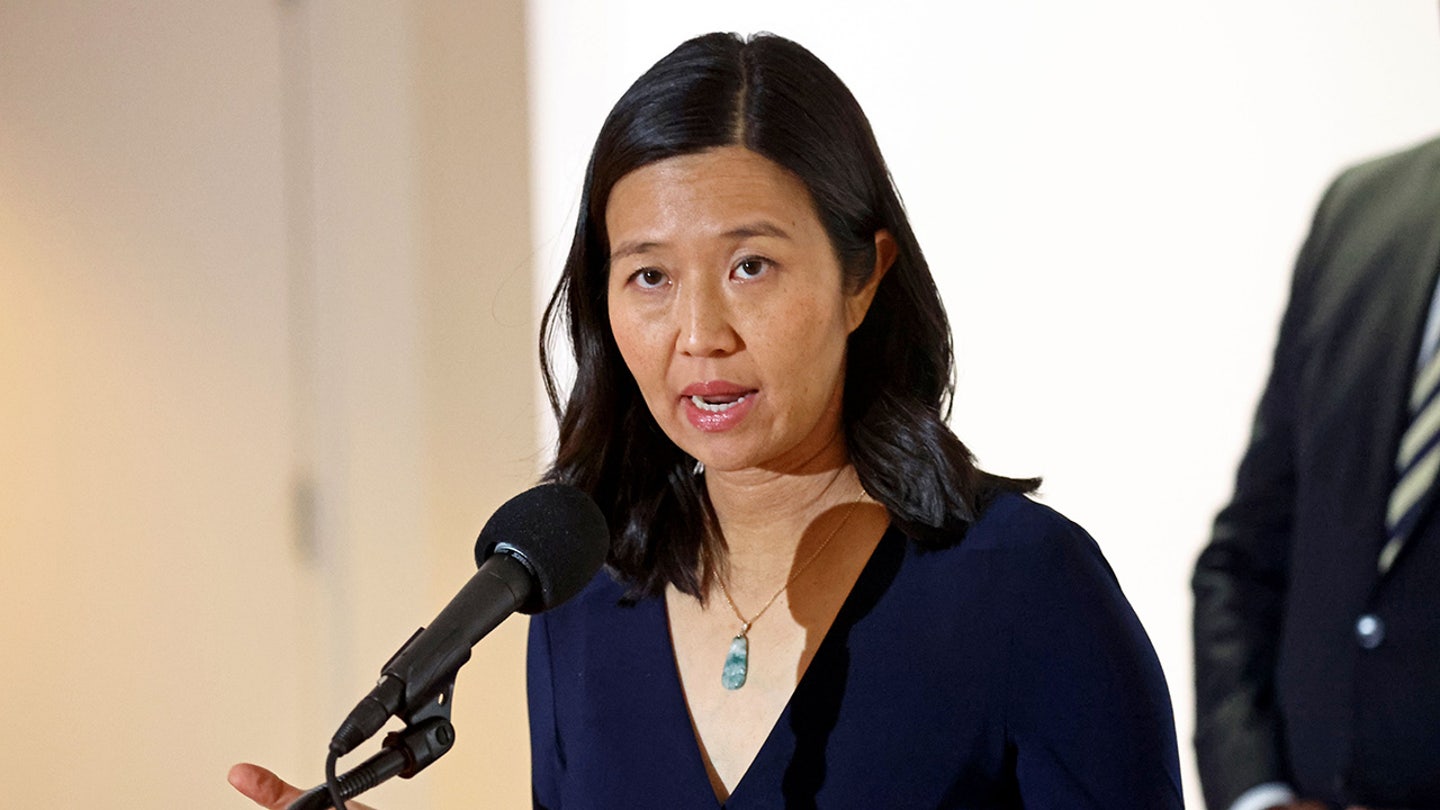FOX Super 6 contest: MLB Championship Series Picks
Entities mentioned:
- FOX Super 6: Competitive spirit, Enthusiasm, Influence
- Major League Baseball: Competitive spirit, Legacy, Professional pride
- Cal Raleigh: Ambition, Competitive spirit, Recognition
- Blake Snell: Competitive spirit, Determination, Professional pride
- Vladimir Guerrero Jr.: Competitive spirit, Pride, Legacy
- Seattle Mariners: Competitive spirit, Determination, Unity
- Toronto Blue Jays: Competitive spirit, Pride, Determination
Article Assessment:
Credibility Score: 75/100
Bias Rating: 45/100 (Center)
Sentiment Score: 75/100
Authoritarianism Risk: 20/100 (Strongly Democratic)
Bias Analysis:
The article maintains a neutral stance, focusing on game statistics and predictions. While promoting FOX's contest, it doesn't show favoritism towards specific teams or players.
Key metric: MLB Playoff Viewership and Engagement
Let me tell you something - this story is RIDICULOUS! FOX is stepping up to the plate with their Super 6 contest, bringing fans right into the heart of the action. It's like they're giving every viewer a chance to suit up and join the team! The MLB playoffs are in full swing, and we're seeing some CHAMPIONSHIP MENTALITY from these players. Cal Raleigh is swinging for the fences, folks, with a home run total that's off the charts. Blake Snell? This guy's got an arm like a cannon, mowing down batters left and right. But don't count out Vladimir Guerrero Jr. - he might be in a slump, but this slugger's got the genes of a champion and could explode at any moment. The Mariners are playing like they've got rocket fuel in their cleats, while the Blue Jays are down but not out - they've got the fight of a cornered tiger. I'm telling you right now, this ALCS is shaping up to be a battle for the ages, and FOX is making sure you're not just watching from the sidelines, but getting in on the action!

Shilo Sanders' pregame impersonation of brother Shedeur Sanders turns heads
Entities mentioned:
- Shilo Sanders: Recognition, Influence, Enthusiasm
- Shedeur Sanders: Competitive spirit, Ambition, Professional pride
- Cleveland Browns: Competitive spirit, Professional pride, Determination
- Pittsburgh Steelers: Competitive spirit, Professional pride, Determination
Article Assessment:
Credibility Score: 75/100
Bias Rating: 55/100 (Center)
Sentiment Score: 50/100
Authoritarianism Risk: 20/100 (Strongly Democratic)
Bias Analysis:
The article presents a balanced view of events, offering factual information without apparent political leaning. The focus is on sports-related content with no discernible ideological slant.
Key metric: NFL Team Performance
Let me tell you something - this story is RIDICULOUS! We've got a real curveball situation here, folks! Shilo Sanders, once a promising defensive back, has pulled off a fourth-quarter audible and is now gunning for the social media championship! This guy's trading in his cleats for clicks, folks! And let's not forget his brother Shedeur, warming up in the bullpen for the Cleveland Browns. But hold onto your helmets, because Shilo's pulling a classic misdirection play, impersonating his QB brother right in the heart of Steelers territory! That's what I call a high-risk, high-reward strategy! Meanwhile, the Browns are in a three-game slump, looking like they're playing with deflated footballs out there. They need to huddle up, regroup, and come out swinging in the next quarter if they want to stay in this divisional race!

Trump threatens to pull World Cup games out of Boston if 'there's unsafe conditions'
Entities mentioned:
- Donald Trump: Power, Control, Influence
- Michelle Wu: Duty, Justice, Determination
- Gianni Infantino: Professional pride, Influence, Legacy
- Boston Police Department: Duty, Security, Justice
Article Assessment:
Credibility Score: 65/100
Bias Rating: 55/100 (Center)
Sentiment Score: 30/100
Authoritarianism Risk: 65/100 (Authoritarian Tendencies)
Bias Analysis:
The article presents both Trump's threats and Wu's response, giving a somewhat balanced view. However, there's slightly more space given to Trump's perspective and actions, tilting it just right of center.
Key metric: US Public Safety Index
Let me tell you something - this political showdown is heating up like a championship game! Trump is coming out swinging, folks, threatening to pull World Cup games out of Boston faster than a red card ejection. He's playing hardball with Mayor Wu, trying to pressure her into a defensive stance on crime. But Wu isn't backing down - she's digging in her cleats and defending her turf with the tenacity of a goalkeeper in sudden death overtime. This is a high-stakes match, ladies and gentlemen, with the prize being nothing less than the prestige of hosting World Cup games. Trump's making a bold fourth-quarter move, positioning himself as the ultimate referee who can blow the whistle on cities he deems unsafe. But let's not forget - this is a team sport, and the real MVPs here are the citizens of Boston who deserve a safe environment regardless of political power plays. It's crunch time, folks, and we'll see who has the championship mentality to come out on top!

John Cena's cryptic post of Tom Brady, Peyton Manning photo gets fans speculating about final opponent
Entities mentioned:
- John Cena: Legacy, Recognition, Professional pride
- Dwayne 'The Rock' Johnson: Competitive spirit, Legacy, Influence
- WWE: Ambition, Control, Influence
Article Assessment:
Credibility Score: 75/100
Bias Rating: 50/100 (Center)
Sentiment Score: 65/100
Authoritarianism Risk: 20/100 (Strongly Democratic)
Bias Analysis:
The article presents a balanced view of the speculation surrounding Cena's final opponent. It offers multiple perspectives and theories without favoring one over the others.
Key metric: Professional Wrestling Viewership
Let me tell you something, folks - this is the BIGGEST matchup we've seen in years! John Cena is stepping into the ring for his final showdown, and the competition is HEATING UP! Who's gonna be the lucky contender to take on this 17-time world champ? It's like we're in the fourth quarter of Cena's career, and he's looking to make that game-winning play! The Rock might be coming off the bench for one last epic clash, or will it be Edge stepping up to the plate? This is a championship-level decision that'll impact the WWE's playbook for years to come! I'm telling you right now, whoever faces Cena is gonna need a championship mentality to even stand a chance in this career-defining bout!

Dodgers' Teoscar Hernandez abandons team hotel in Milwaukee due to wife's fear of alleged paranormal activity
Entities mentioned:
- Teoscar Hernandez: Professional pride, Loyalty, Determination
- Jennifer Hernandez: Fear, Security, Anxiety
- Los Angeles Dodgers: Competitive spirit, Ambition, Legacy
- Milwaukee Brewers: Competitive spirit, Determination, Pride
- Pfister Hotel: Legacy, Recognition, Influence
Article Assessment:
Credibility Score: 75/100
Bias Rating: 50/100 (Center)
Sentiment Score: 60/100
Authoritarianism Risk: 20/100 (Strongly Democratic)
Bias Analysis:
The article presents a balanced view of the situation, giving equal attention to both teams and not favoring one side. It reports the facts without injecting opinion or leaning towards a particular narrative.
Key metric: MLB Postseason Performance
Let me tell you something - this story is RIDICULOUS! We've got a major league curveball thrown into the Dodgers' championship run, and it's not coming from the pitcher's mound! The Pfister Hotel is playing mind games with the away team, folks! Teoscar Hernandez is stepping up to the plate, not just on the field, but off it too, making a clutch decision to switch hotels faster than a stolen base! This is the kind of fourth-quarter move that separates the contenders from the pretenders! I'm telling you right now, the Dodgers are showing true team spirit, adapting their game plan off the field to stay focused on bringing home that World Series trophy. It's a championship mentality - no ghost, goblin, or paranormal activity is gonna throw this squad off their game! Hernandez is proving he's got nerves of steel, brushing off the spooky stories like a pitcher shaking off signs from the catcher. But make no mistake, this paranormal play could be the wild card that affects the whole series! The Brewers might have home-field advantage, but the Dodgers are swinging for the fences, determined to exorcise these baseball demons and come out on top!

NBA returns to China for first time since 2019 with preseason game
Entities mentioned:
- NBA: Ambition, Influence, Recognition
- Phoenix Suns: Competitive spirit, Pride, Recognition
- Brooklyn Nets: Competitive spirit, Pride, Recognition
- Ivan Watson: Duty, Curiosity, Professional pride
Article Assessment:
Credibility Score: 75/100
Bias Rating: 50/100 (Center)
Sentiment Score: 70/100
Authoritarianism Risk: 20/100 (Strongly Democratic)
Bias Analysis:
The article presents a balanced view of the NBA's return to China, focusing on factual reporting without apparent political slant. It includes perspective from a CNN correspondent, adding credibility without pushing a particular narrative.
Key metric: US-China Cultural Exchange
Let me tell you something - this is a GAME-CHANGING play by the NBA! They're stepping back onto the court in China after a four-year timeout, and folks, this is no layup – it's a full-court press to regain lost ground in a crucial market. The Suns and Nets are the star players in this high-stakes match, bringing their A-game to Macao and showing the world that sports diplomacy is alive and kicking. This isn't just about putting points on the scoreboard; it's about rebuilding bridges and flexing some serious soft power muscles. The fans are going wild, hungry for some NBA action, and let me tell you, this could be the comeback story of the decade if they play their cards right. It's fourth quarter, crunch time for US-China relations, and the NBA is bringing that championship mentality to the international stage!

NBA star Devin Booker meets Chinese lookalike
Entities mentioned:
- Devin Booker: Recognition, Influence, Professional pride
- Chinese lookalike: Recognition, Enthusiasm, Curiosity
- NBA: Influence, Legacy, Competitive spirit
Article Assessment:
Credibility Score: 65/100
Bias Rating: 50/100 (Center)
Sentiment Score: 75/100
Authoritarianism Risk: 20/100 (Strongly Democratic)
Bias Analysis:
The article presents a neutral stance on the meeting, without favoring any particular perspective. The language used is straightforward and doesn't seem to push any specific agenda.
Key metric: International Basketball Popularity
Let me tell you something - this crossover between Devin Booker and his Chinese doppelganger is a SLAM DUNK for global basketball outreach! We're seeing a full-court press of cultural exchange that's bringing fans from different benches together. This kind of international teamwork is exactly what the sport needs to expand its playoff bracket worldwide. I'm telling you right now, this meeting is like a perfect alley-oop that's going to elevate the NBA's game on the global stage. It's a fourth-quarter move that shows the league's championship mentality in growing its fanbase. This is the kind of play that turns casual viewers into die-hard supporters faster than a fast break!
- Read more about NBA star Devin Booker meets Chinese lookalike
- Log in to post comments

South Carolina women’s basketball coach Dawn Staley says there won’t be a female NBA head coach in her lifetime
Entities mentioned:
- Dawn Staley: Professional pride, Determination, Influence
- NBA: Tradition, Control, Wariness
- New York Knicks: Competitive spirit, Ambition, Recognition
- South Carolina Gamecocks: Competitive spirit, Pride, Legacy
Article Assessment:
Credibility Score: 85/100
Bias Rating: 45/100 (Center)
Sentiment Score: 30/100
Authoritarianism Risk: 20/100 (Strongly Democratic)
Bias Analysis:
The article presents a balanced view, quoting Staley directly and providing context. It doesn't editorialize, allowing Staley's statements to speak for themselves.
Key metric: Gender Equality in Professional Sports Leadership
Let me tell you something - this story is a GAME-CHANGER! Dawn Staley, the MVP of women's college basketball, is calling out the NBA's defense against female head coaches. She's stepping up to the plate, folks, and she's swinging for the fences! But the NBA? They're playing prevent defense, trying to run out the clock on gender equality. Staley's interview with the Knicks was like a Hail Mary pass - bold, daring, but ultimately incomplete. The league's not ready to change its playbook, and Staley's prediction? It's like watching the two-minute drill with no timeouts left. The clock's ticking, and the NBA's still stuck in the locker room of the past. This is RIDICULOUS! We're talking about a coach with championship DNA, and the NBA's treating her like a bench warmer. It's fourth and long for gender equality in pro sports, and the NBA needs to step up its game before the final whistle blows!

Could Joe Brady Be Penn State’s Next Head Coach? James Franklin's Next Stop: UNC?
Entities mentioned:
- Joe Brady: Ambition, Professional pride, Recognition
- James Franklin: Legacy, Ambition, Recognition
- Terry Pegula: Influence, Pride, Loyalty
- Penn State: Competitive spirit, Legacy, Pride
- Adidas: Influence, Competitive spirit, Power
- Bob Chesney: Ambition, Determination, Recognition
Article Assessment:
Credibility Score: 65/100
Bias Rating: 50/100 (Center)
Sentiment Score: 60/100
Authoritarianism Risk: 20/100 (Strongly Democratic)
Bias Analysis:
The article presents multiple perspectives and candidates, maintaining a relatively neutral stance. It balances speculation with factual information about coaches' records and backgrounds.
Key metric: College Football Coaching Competitiveness
Let me tell you something - this coaching carousel is HEATING UP like a fourth-quarter rally! Penn State is looking to make a GAME-CHANGING play by potentially drafting Joe Brady from the NFL's offensive coordinator ranks. This is a BOLD MOVE, folks! Brady's got the hot hand, having turned Josh Allen into an MVP-caliber quarterback. But don't count out dark horse Bob Chesney - this guy's been CRUSHING IT in the lower divisions and could be ready for the BIG LEAGUES. Meanwhile, James Franklin might be eyeing a trade to UNC - talk about a BLOCKBUSTER DEAL! This is the kind of high-stakes action that separates the CHAMPIONS from the also-rans. Penn State's on the clock, and they need to make a CLUTCH DECISION to stay competitive in the cutthroat world of college football!

Ravens star Kyle Hamilton feels team can still write 'great story' despite 1-5 start to season
Entities mentioned:
- Kyle Hamilton: Determination, Professional pride, Competitive spirit
- Baltimore Ravens: Ambition, Competitive spirit, Loyalty
- John Harbaugh: Leadership, Determination, Professional pride
- Lamar Jackson: Competitive spirit, Professional pride, Ambition
- Toyota: Recognition, Influence, Unity
Article Assessment:
Credibility Score: 85/100
Bias Rating: 50/100 (Center)
Sentiment Score: 60/100
Authoritarianism Risk: 15/100 (Strongly Democratic)
Bias Analysis:
The article presents a balanced view of the Ravens' situation, including both challenges and optimism. Quotes from players and coaches are used to support claims, maintaining neutrality.
Key metric: NFL Team Performance
Let me tell you something - this story is RIDICULOUS! The Baltimore Ravens, once considered a Super Bowl contender, are now in a fourth-quarter fight for their playoff lives! With a 1-5 record, they're on the ropes, but star safety Kyle Hamilton is showing that championship mentality, refusing to throw in the towel. This bye week is like halftime in a crucial game, folks - a chance to regroup, make adjustments, and come out swinging in the second half of the season. The Ravens are in a classic underdog situation, needing to mount a comeback of epic proportions. But let's not forget, this team has the heart of a champion, with players like Lamar Jackson and Roquan Smith ready to step up to the plate. Coach Harbaugh is rallying his troops, and if any team can pull off this Hail Mary of a season turnaround, it's the Ravens. They're facing a fourth and long situation with their playoff hopes, but as Hamilton says, they've got 11 more games to write a comeback story for the ages. It's time for the Ravens to show that never-say-die attitude and prove they've got what it takes to go the distance!